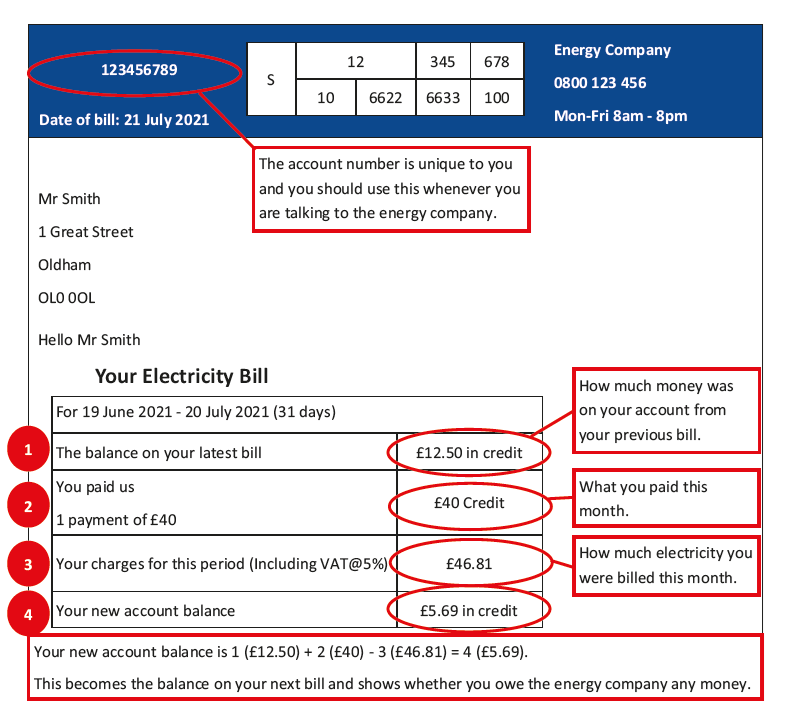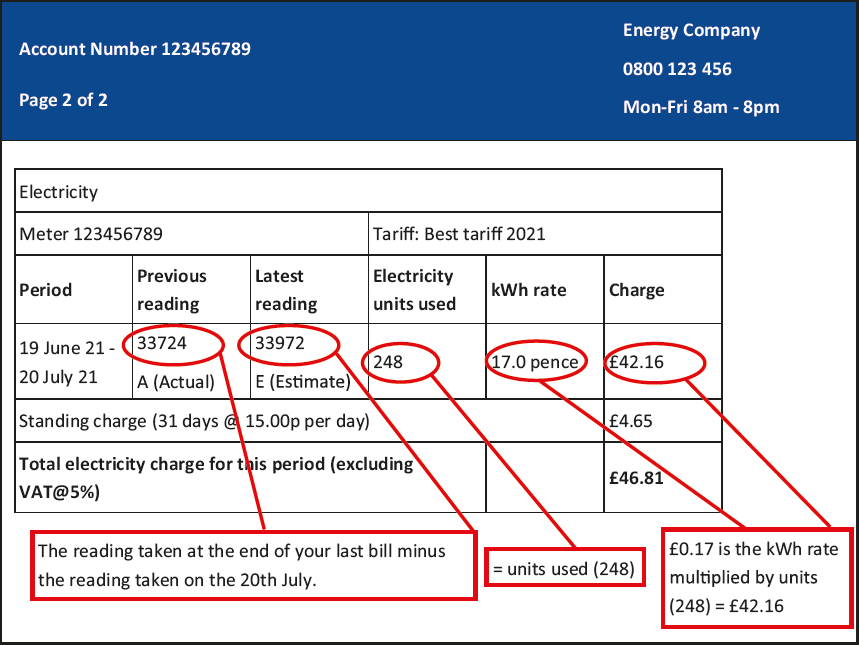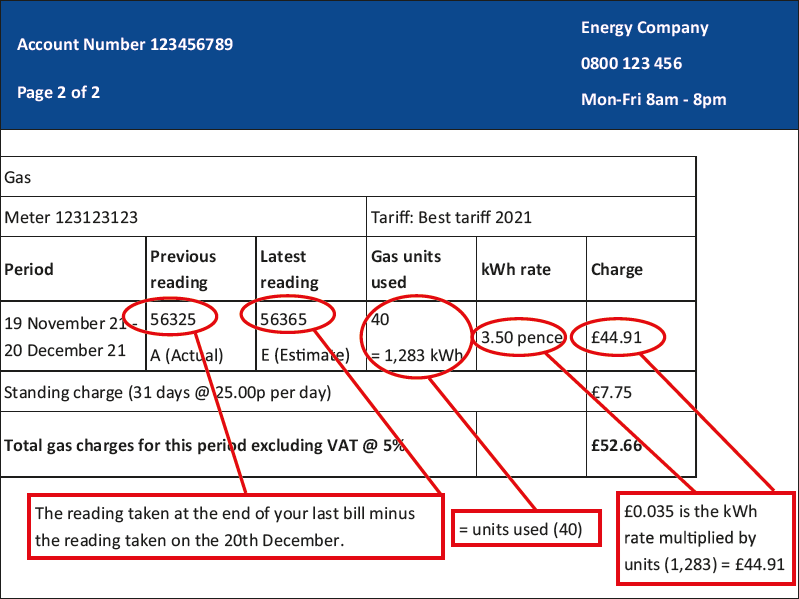
Understanding your energy bills
Understanding your electricity bill
Why are bills complicated?
Energy bills are getting easier to understand, as there has been lots of pressure applied to energy companies over the years to simplify bills. Many people are frightened by terms like kWh’s and MPANs, as they are not used by many people in day to day living. Energy bills have lots of numbers on them, and most people are frightened by numbers to some degree. Whilst bills may become easier to read in the future, most of us will always find them challenging.
Download the understanding your electricity bill guide
Becoming energy bill aware
Once you become energy bill aware, you are more likely to read your energy bill. You are more likely to think about energy efficiency, and then more likely to regularly switch suppliers.
What is the key information I need to know?


Actuals versus estimates
An actual reading is where you or a meter reading agent supply a meter read. An estimate is where no meter read exists and the energy company makes a best guess. The energy company will use your previous billing information to help make that estimate. If you don’t take readings over a long period of time, your bill will become less accurate and you could either accrue a large credit, which means the energy company owes you a lot of money. Or you could end up in debit, meaning you owe the energy company a lot of money.
You can take a meter read whenever you like and submit this to your energy supplier. That actual reading will always be used, even if it only covers part of your latest bill. Get into the habit of supplying regular meter reads and you will reduce the risk of getting large unwanted energy bills.
Understanding your gas bill
Download the understanding your gas bill guide
What is the key information I need to know?


Why are gas bills measured in units rather than kWh’s?
Gas is something that you physically import into your home and is generally measured in cubic metres. One cubic metre of gas would equal one unit. The energy companies convert that unit into the kWh’s that would be produced from burning that gas.
The calculation is long, but is fairly straightforward:
Gas units used x 2.83 x Calorific value 39.9 x Volume correction 1.02264 ÷ 3.6 = kWh’s
Imperial or Metric?
Most gas meters are metric, but some old properties may still have an imperial meter. Metric meters measure gas in cubic metres, whereas imperial ones measure in cubic feet. If you have an imperial meter, then it is very important that your energy company knows this, as you could be being charged incorrectly and risk falling into debt. More information about the difference between metric and imperial gas meters is available in Energy Series 05 - Reading your energy meters.

Still struggling
Our Community Impact Team can support you if you need help understanding or paying energy bills. Get in touch by emailing CommunityImpact@fcho.co.uk or call 0161 393 7117.